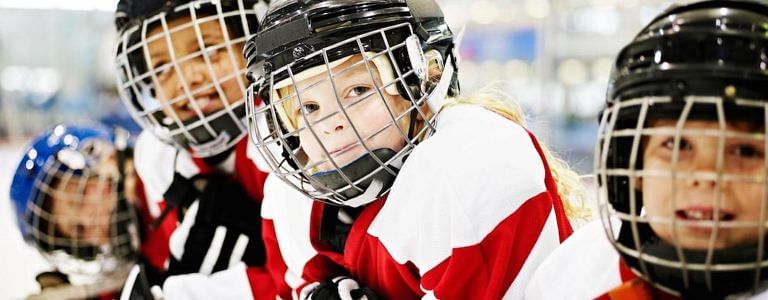Article by: Tim Turk Hockey
Many youth hockey leagues across Canada are now requiring their coaches, trainers, and other team officials to take courses that will educate them on gender identities and gender expressions. These gender identity training courses are designed to help everyone involved with the league understand what the current issues facing trans-gender athletes are and to keep them up to date on the current rules about discrimination. These leagues want to create a safe and equal environment for everyone that loves hockey regardless of their gender identity. This is an important step in creating a more harmonious environment across the youth hockey world, and it will likely lead to more leagues taking the same approach.
What are Gender Identity Training Courses?
The mandatory gender identity training courses are free online modules that are administered by the Hockey Canada Registry (HCR). Officials must create an eHockey account in order to access the training courses and complete the modules. The two courses include Understanding Discrimination Based on Gender Identity and Guide to Dressing Room Policy and Confidentiality Statement. Team officials are required to complete both modules. Upon completion, they will be approved for their team roster and notifications will be posted to their HCR profiles.
Why are These Modules Required?
Hockey Canada is introducing these training sessions because they want to create a safe, trans-inclusive atmosphere that is accepting of all players and officials no matter how they identify. This was initiated in 2013 when the Human Rights Tribunal of Ontario received a complaint about gender identity discrimination against Hockey Canada. This resulted from discrimination against a transgender teenager who was not allowed to change in the boys’ locker room and was forced to use a separate room. The league “outed” him in this regard. The goal of these modules is to help league and team officials understand the concept of gender identity and show more sensitivity in similar future cases.
What Will These Courses Teach?
The two courses are designed to help officials both understand what gender identity is and how to handle different scenarios involving trans athletes. The training course explains the gender spectrum and the history of discrimination against transgender athletes in the world of sports. Those who aren’t familiar with the spectrum will gain a stronger understanding and should learn new information that will help them make better decisions in the future.
The modules will also focus on potential situations that may need to be handled by coaches and officials in order to prevent discrimination and provide a safe environment for all of their players. This includes helping players find a changing room with which they are comfortable as well as doing everything they can to help those who feel they have been discriminated against. Kids don’t always understand the ramifications of their words and actions, so it is sometimes up to coaches and other team officials to help those who may have been taunted or hurt by other teammates.
The training is not athletic in nature and does not provide any sort of skill or strategy training regarding hockey games. Instead, it is focused on educating officials about gender identity issues and helping them address these with care. It may translate to more success on the ice as it could help to create a more cohesive, friendly team environment that leads to an energized, united, and motivated group of hockey players.
Who is Required to Take the Courses?
All team and league officials are required to complete these training modules. The original deadline was October 1, 2017, but any team officials that join a team after that have 30 days to complete the training. Hockey Canada is serious about making sure that all people who will be working in their leagues are informed about gender identity and sensitive to the needs of all of their players.
Benefits of Gender Identity Training
Gender Identity Training has many benefits not only in hockey but across many fields. Education, first and foremost, is always important, even for those who have been finished with school for years. Coaches and team officials may learn things that they never knew before and this might lead to them being more accepting and understanding of the needs of other people.
Diversity is important for the success of a hockey team, and promoting a diverse, safe environment made up of all kinds of backgrounds and identities will help to form a happy, successful hockey team. In youth hockey, this success isn’t always measured by wins and losses, but rather by what the kids have learned and how they can apply it to other areas of their lives. Hockey may be a game, but they can experience many bonding moments and create friendships that will last a lifetime.
These training courses will help coaches to set a respectful, powerful example for the kids on the team. If the coach is open about being accepting of others and condemning discrimination, the kids are more likely to follow his or her lead. Where transgender athletes may have felt out of place in the past, this type of behavior can help them to feel more accepted and ready to compete with the rest of the players. This inclusive atmosphere will allow the players to happily work together and play the game they all love without reservations.
Most importantly, offering a safe, inclusive environment for all kids will teach them the benefits of diversity and acceptance in their everyday lives. If they can learn to play hockey without discrimination, they will see that tolerance is an important value across the board. As they grow older, this may translate to them becoming tolerant, loving adults who understand the importance of diversity and the things that they can do to make the world a better place for all of us.

